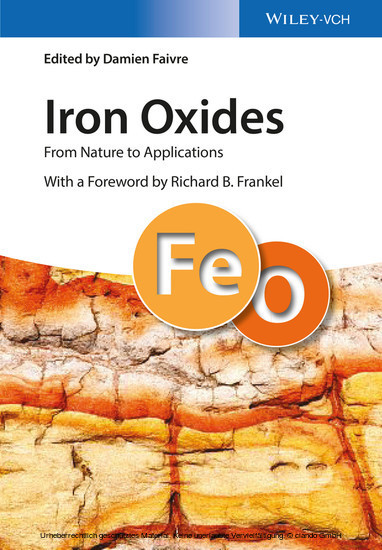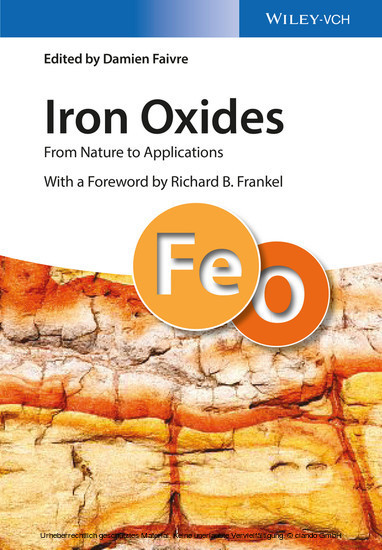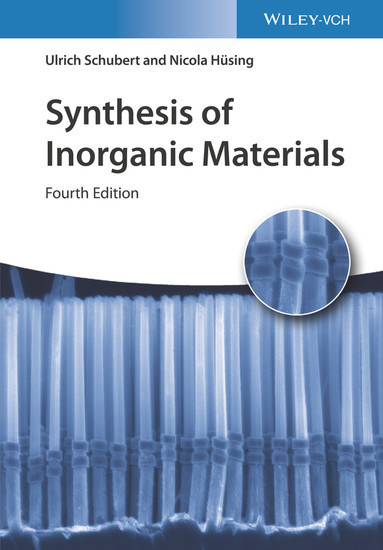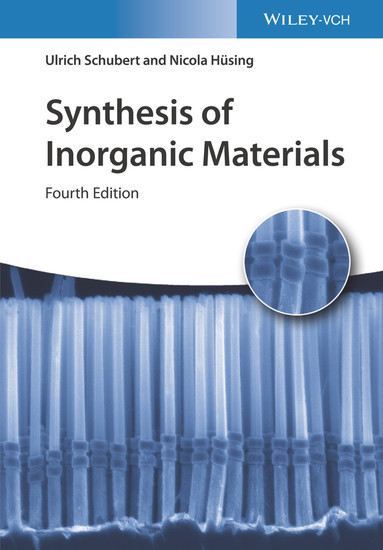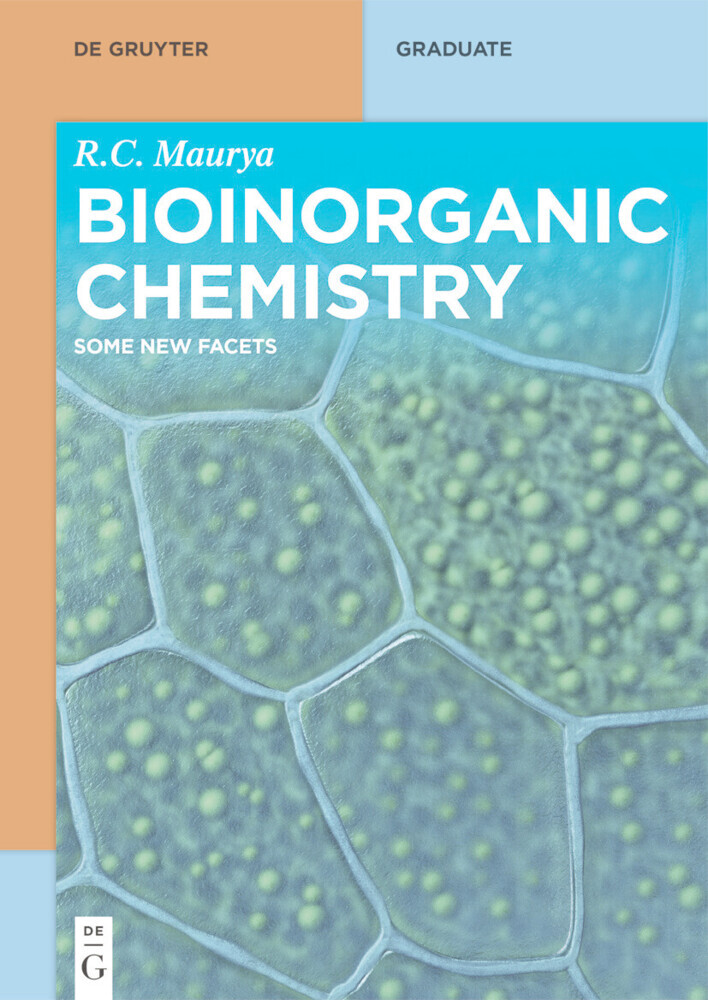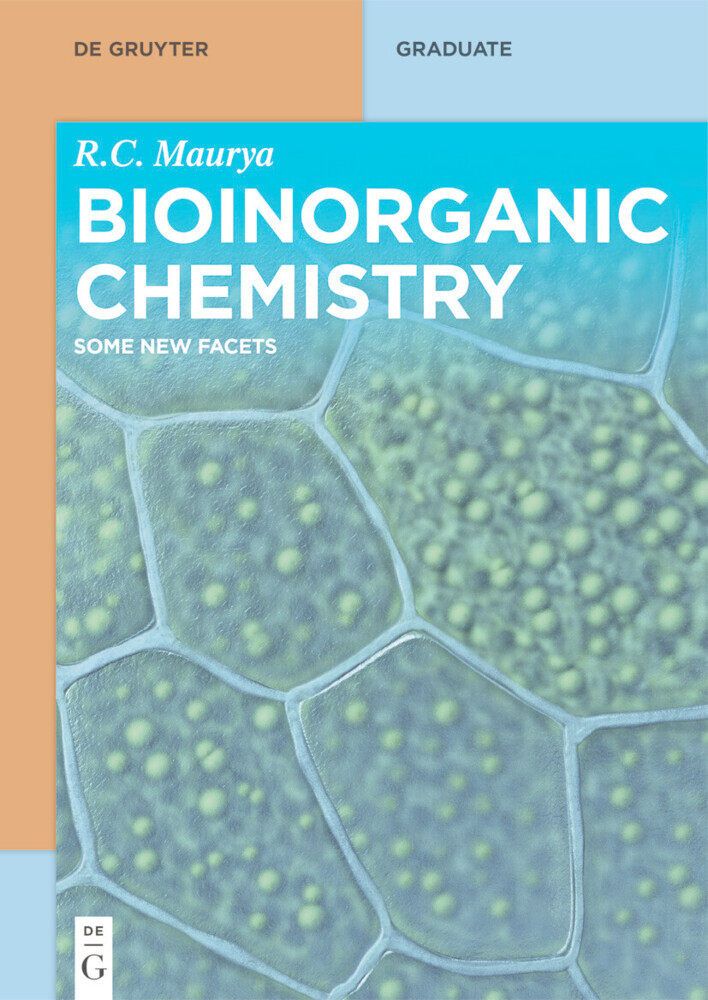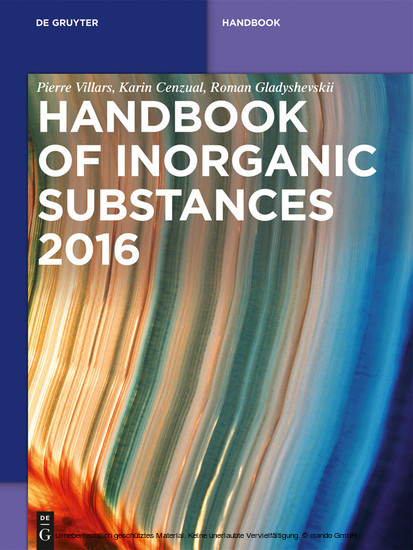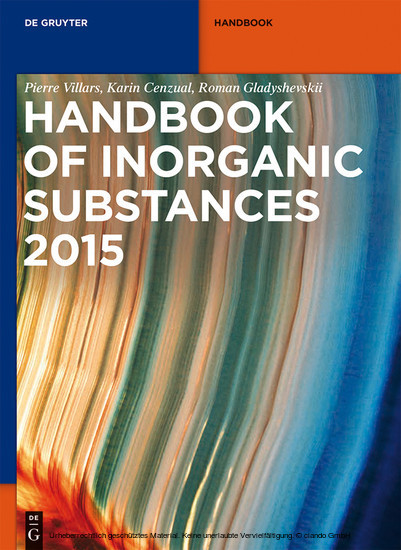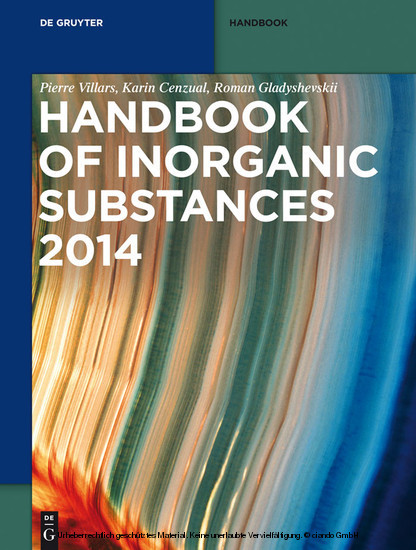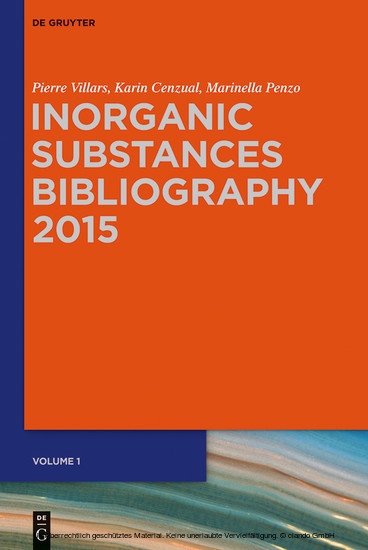Iron Oxides
From Nature to Applications
Compiling all the information available on the topic, this ready reference covers all important aspects of iron oxides.
Following a preliminary overview chapter discussing iron oxide minerals along with their unique structures and properties, the text goes on to deal with the formation and transformation of iron oxides, covering geological, synthetic, and biological formation, as well as various physicochemical aspects. Subsequent chapters are devoted to characterization techniques, with a special focus on X-ray-based methods, magnetic measurements, and electron microscopy alongside such traditional methods as IR/Raman and Mossbauer spectroscopy. The final section mainly concerns exciting new applications of magnetic iron oxides, for example in medicine as microswimmers or as water filtration systems, while more conventional uses as pigments or in biology for magnetoreception illustrate the full potential.
A must-read for anyone working in the field.
Currently a private lecturer at the University of Potsdam, Germany, Damien Faivre studied physical chemistry at the Claude Bernard University in Lyon, France, spending a year as an exchange student at Concordia University in Montreal, Canada. He continued with his doctoral thesis in geochemistry at the Institute for Earth Physics in Paris, France and, while still a PhD student, worked at the California Institute of Technology in Pasadena, USA. In 2005, he joined the Max Planck Institute for Marine Microbiology in Bremen, Germany, as Marie Curie Fellow of the EU to study the properties of magnetosomes and their formation mechanisms, and two years later moved to the Department of Biomaterials at the Max Planck Institute of Colloids and Interfaces in Potsdam, as group leader to combine his interests in bio- and biomimetic formation and the assembly of magnetic iron oxides, for which he was awarded a grant from the ERC in 2010.
Following a preliminary overview chapter discussing iron oxide minerals along with their unique structures and properties, the text goes on to deal with the formation and transformation of iron oxides, covering geological, synthetic, and biological formation, as well as various physicochemical aspects. Subsequent chapters are devoted to characterization techniques, with a special focus on X-ray-based methods, magnetic measurements, and electron microscopy alongside such traditional methods as IR/Raman and Mossbauer spectroscopy. The final section mainly concerns exciting new applications of magnetic iron oxides, for example in medicine as microswimmers or as water filtration systems, while more conventional uses as pigments or in biology for magnetoreception illustrate the full potential.
A must-read for anyone working in the field.
Currently a private lecturer at the University of Potsdam, Germany, Damien Faivre studied physical chemistry at the Claude Bernard University in Lyon, France, spending a year as an exchange student at Concordia University in Montreal, Canada. He continued with his doctoral thesis in geochemistry at the Institute for Earth Physics in Paris, France and, while still a PhD student, worked at the California Institute of Technology in Pasadena, USA. In 2005, he joined the Max Planck Institute for Marine Microbiology in Bremen, Germany, as Marie Curie Fellow of the EU to study the properties of magnetosomes and their formation mechanisms, and two years later moved to the Department of Biomaterials at the Max Planck Institute of Colloids and Interfaces in Potsdam, as group leader to combine his interests in bio- and biomimetic formation and the assembly of magnetic iron oxides, for which he was awarded a grant from the ERC in 2010.
Faivre, Damien
| ISBN | 9783527691364 |
|---|---|
| Artikelnummer | 9783527691364 |
| Medientyp | E-Book - PDF |
| Copyrightjahr | 2016 |
| Verlag | Wiley-VCH |
| Umfang | 632 Seiten |
| Sprache | Englisch |
| Kopierschutz | Adobe DRM |

